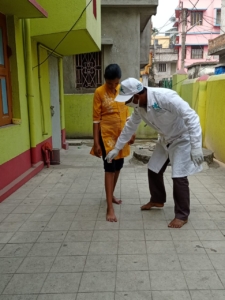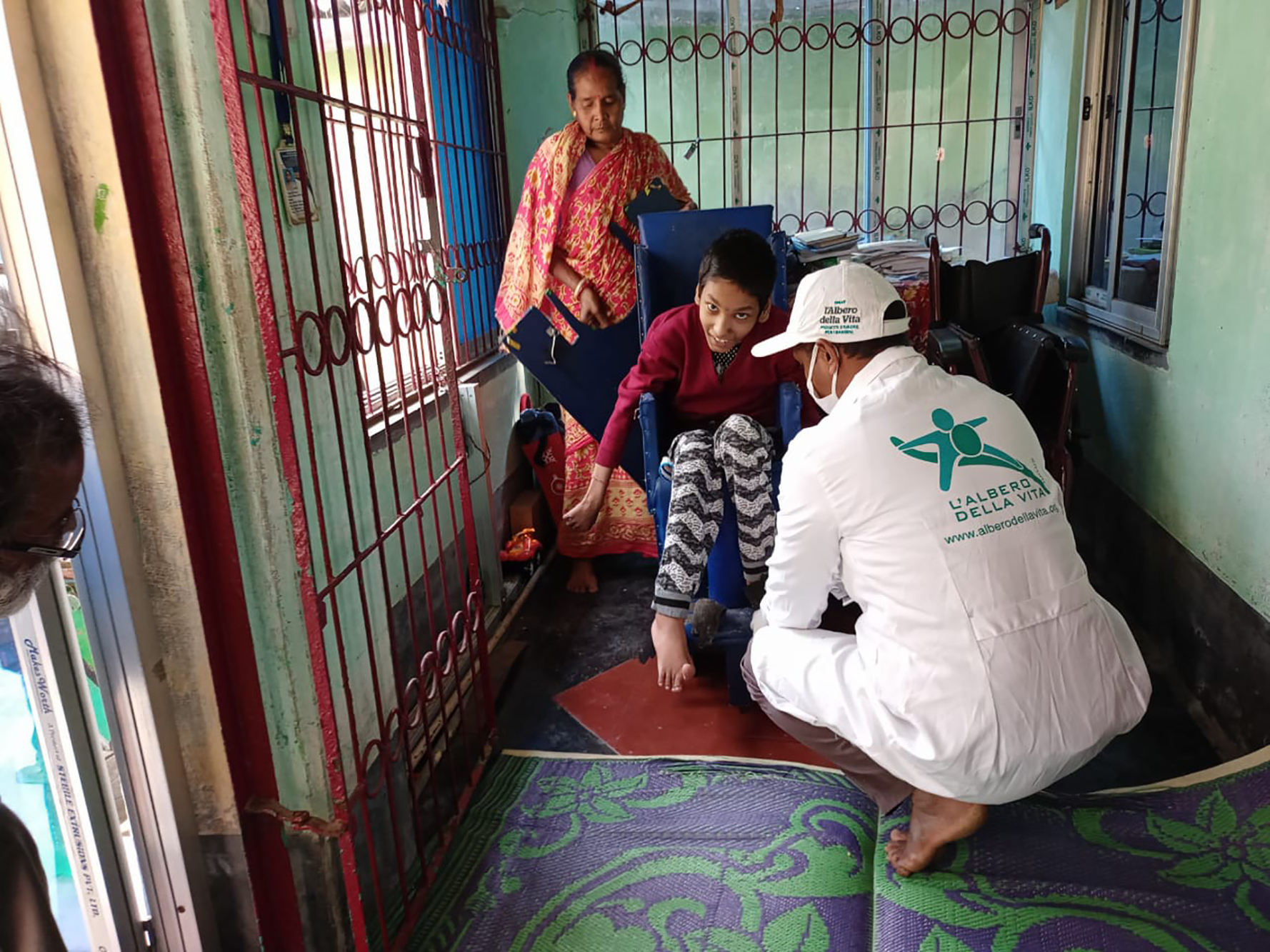In 2020, the Day Care Centre for children with Cerebral Palsy was opened till 17th March, after which a sudden lockdown was declared in the country due to the COVID-19 Pandemic. The lockdown situation had negatively affected the livelihood of the families of the children who are enrolled in DCC. It had left the villagers jobless and without food, let alone hygiene materials that were needed to prevent the COVID-19 infection. At that time the only concern for these marginalized people was survival, because if not COVID-19, then starvation would have caused death. Hence, FADV planned an Emergency Response initiative from April to December 2020. The initiative focused primarily on sustaining lives through the provision of food and hygiene materials. The response initiative focused on the following outcomes:
- Stabilized and improved food consumption over the assistance period for targeted households
- Reduced health hazards through im
 proved access to hygiene materials, masks, and awareness
proved access to hygiene materials, masks, and awareness - Identified traumatized and mentally distressed children and adults provided with virtual psycho-social support
450 emergency food packets and hygiene kits and 750 masks were provided to 150 families of children with special needs. 150 children with cerebral palsy and multiple disabilities had access to physiotherapy sessions at home. Every day the project team used to move from one house to another on bicycles, across villages, and spent one hour at each of the houses and performed physiotherapy sessions with the children. They carried food packets and medicines, supported by FADV, and provided the same to the families of the children during the lockdown period. The project team in coordination with government health workers conducted household visits to make the community aware of the preventive measures of COVID-19 infection. Procedures of wearing masks and using local herbs and vegetables to increase immunity were shared among the community. The project team made the community, especially women, aware of the common water collection points so that they could maintain proper hygiene every time they collected water.

